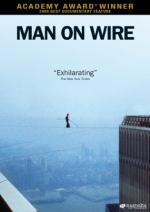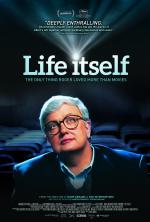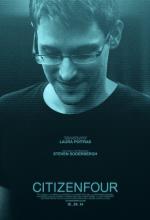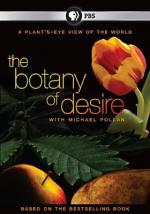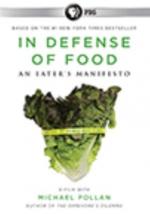April 15, 2016 | Alyssa Y
A look at the high-wire walk made by Philippe Petit in 1974 between the World Trade Center's Twin Towers in New York City, and how it is still considered one of history's most artistic crimes.
The legacy of Roger Ebert's life, recounts the inspiring and entertaining life of the world-renowned film critic and social commentator, from his Pulitzer Prize-winning film criticism at the Chicago Sun-Times to becoming one of the most influential cultural voices in America .
2014's Academy Award winning documentary Citizenfour is a real life international thriller that unfolds by the minute. With unprecedented access, this gripping behind-the-scenes chronicle follows award-winning director Laura Poitras (My Country, My Country) and journalist Glenn Greenwald's remarkable encounters with whistle-blower Edward Snowden in a hotel room in Hong Kong, as he hands over classified documents that provide evidence of mass indiscriminate and illegal invasions of privacy by the National Security Agency (NSA). The documentary not only shows the dangers of government surveillance, but makes audiences feel them. After seeing the film, viewers will never think the same way about their phone, e-mail, credit cards, web browser or digital footprint again..
April 12, 2016 | Alyssa Y
Learn about your food - where it comes from, how it's made, and the history of how and why we started to eat what we eat - with some of these informative documentaries.
This film shows how human desires are an essential, intricate part of natural history by exploring the natural history of four plants -the apple, the tulip, marijuana, and the potato - and the corresponding human desires - sweetness, beauty, intoxication and control. This two-hour documentary begins in Michael Pollan's garden, and roams the world, from the fields of Iowa to the apple forests of Kazakhstan, from a medical marijuana hot house to the tulip markets of Amsterdam.
"Eat food. Not too much. Mostly plants." These simple words go to the heart of food journalist Pollan's thesis. Humans used to know how to eat well, he argues, but the balanced dietary lessons that were once passed down through generations have been confused and distorted by food industry marketers, nutritional scientists, and journalists. As a result, we face today a complex culinary landscape dense with bad advice and foods that are not "real." Indeed, plain old eating is being replaced by an obsession with nutrition that is, paradoxically, ruining our health, not to mention our meals. Pollan's advice is: "Don't eat anything that your great-great grandmother would not recognize as food."
